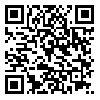Volume 18, Issue 1 (5-2020)
sjsph 2020, 18(1): 1-16 |
Back to browse issues page
Download citation:
BibTeX | RIS | EndNote | Medlars | ProCite | Reference Manager | RefWorks
Send citation to:



BibTeX | RIS | EndNote | Medlars | ProCite | Reference Manager | RefWorks
Send citation to:
Damari B, Rostamigooran N, Salarianzadeh M H, Malekafzali S. Analysis of Intersectoral Collaboration in the Iranian Health System for Implementing Health in all Policies: Challenges and the Way Forward
(This Research was Conducted Before the Covoid-19 Pandemic). sjsph 2020; 18 (1) :1-16
URL: http://sjsph.tums.ac.ir/article-1-5859-en.html
URL: http://sjsph.tums.ac.ir/article-1-5859-en.html
1- PhD. Associated Professor, Department of Health and Governance, Institute of Neuroscience, Tehran University Of Medical Science, Tehran, Iran , bdamari@gmail.com
2- PhD. Assistant Professor, Department of Health and Society Group, Secretariat of Supreme Council of Health and Food Security, Ministry of Health and Medical Education, Tehran, Iran
3- MD. Secretariat of Supreme Council of Health and Food Security, Ministry of Health and Medical Education, Tehran, Iran
4- MSc. Department of Health Governance Group, Secretariat of Supreme Council of Health and Food Security, Ministry of Health and Medical Education, Tehran, Iran
2- PhD. Assistant Professor, Department of Health and Society Group, Secretariat of Supreme Council of Health and Food Security, Ministry of Health and Medical Education, Tehran, Iran
3- MD. Secretariat of Supreme Council of Health and Food Security, Ministry of Health and Medical Education, Tehran, Iran
4- MSc. Department of Health Governance Group, Secretariat of Supreme Council of Health and Food Security, Ministry of Health and Medical Education, Tehran, Iran
Abstract: (3255 Views)
Background and Aim: For achievement of equity in the population health the implementation of health in all policies is essential. The most crucial intervention in this approach is inter-sectoral collaboration.
Materials and Methods: This was a qualitative study based on the national policy framework. Data were collected using literature review, in-depth interviews and focus group discussions with the stakeholders. The results were categorized into three sections, namely, situational analysis and factors affecting it, developing goals and objectives, and requirements and interventions.
Results: Currently inter-sectoral collaboration in the Iranian health system potentially allows to have health in all policies policy in terms of explicit legislative support, national macro-policies/upstream documents and organizational structure. It will require proper planning as regards designing and institutionalizing appropriate mechanisms for collaboration, as well as cultural and skills capacity building, for stakeholders within and outside the health sector.
Conclusion: The findings of this study can be used in annual operational planning of the High Council of Health and Food Security secretariat.
Materials and Methods: This was a qualitative study based on the national policy framework. Data were collected using literature review, in-depth interviews and focus group discussions with the stakeholders. The results were categorized into three sections, namely, situational analysis and factors affecting it, developing goals and objectives, and requirements and interventions.
Results: Currently inter-sectoral collaboration in the Iranian health system potentially allows to have health in all policies policy in terms of explicit legislative support, national macro-policies/upstream documents and organizational structure. It will require proper planning as regards designing and institutionalizing appropriate mechanisms for collaboration, as well as cultural and skills capacity building, for stakeholders within and outside the health sector.
Conclusion: The findings of this study can be used in annual operational planning of the High Council of Health and Food Security secretariat.
Keywords: Health in all Policies, Intersectoral Collaboration, High Council of Health and Food Security, Iranian Health System
Type of Study: Research |
Subject:
Public Health
Received: 2020/06/20 | Accepted: 2020/06/20 | Published: 2020/06/20
Received: 2020/06/20 | Accepted: 2020/06/20 | Published: 2020/06/20
Send email to the article author
| Rights and permissions | |
 |
This work is licensed under a Creative Commons Attribution-NonCommercial 4.0 International License. |





